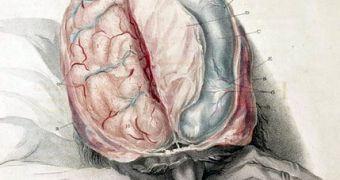A link between rejection by a romantic partner and brain activity associated with reward, motivation and addiction, has been established by a team of researchers at the Saul R. Korey Department of Neurology and of neuroscience at Albert Einstein College of Medicine of Yeshiva University, in New York.
Clinical professor Lucy Brown, Ph.D., is the corresponding author of the study, published in the July issue of the Journal of Neurophysiology. This is the third time that Dr. Brown and her research team demonstrate that primitive reward and survival systems activation occurs in people who look at their loved-one.
This study used the functional magnetic resonance imaging (fMRI) to record brain activity in 15 adults, who had recently been rejected by their partners, but that were still “in love”. They were shown photos of their former companions and this led to an increase activity in several brain areas. Responses came from the motivation and reward control area, that also makes people feel in love, from the nucleus accumbens and orbitofrontal/prefrontal cortex, which triggers cravings and addictions, and from the insular cortex and the anterior cingulate, associated with physical pain and anxiety.
These results explain the anguished feelings that come with a break-up and some extreme behavior such as stalking, suicide or homicide. Expressions such as “love gives you wings” or “love makes you do crazy things” begin to make more sense, after this study.
“Romantic love, under both happy and unhappy circumstances, may be a 'natural' addiction,” said Dr. Brown. “Our findings suggest that the pain of romantic rejection may be a necessary part of life that nature built into our anatomy and physiology. A natural recovery, to pair up with someone else, is in our physiology, too”.
Professor Lucy Brown graduated at Oberlin College and New York University. She received a B.A. In Psychology in 1968 and a PhD in Physiological Psychology in 1973. She has been working at the Albert Einstein College of Medicine since 1973.

 14 DAY TRIAL //
14 DAY TRIAL //